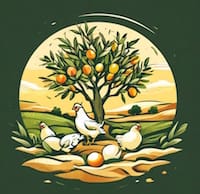About Grove Eco

This is a classic "What came first?" gag. The Grove Eco website started out as Olive Grove Eggs, a project to set up a free-range egg enterprise in olive groves in Spain.
The Grove Eco Community
There was always a lot more to the original Olive Grove Eggs idea than chickens and olive trees. I always viewed it as the foundation for perhaps even more important work - building out a diverse local community project.
Eggs are arguably the best currency there is for community-building. Who can resist a freshly laid egg? Who doesn't receive a fresh egg and look around for something to exchange, be that veg from the garden or fresh bread, a drink at the pub...
I built an online nationwide community many years ago, when Google and Wordpress and Twitter were weird concepts to most. I am motivated to do it again, but I have expanded my ideas from artisan specialist painters, to encompass food growers, artisans and artists of all stripes who are not only into preserving the best of traditional skills, but have a close affinity to Nature. People who can see the value in working in sympathy with their environment, not out-and out exploiters of everything the planet has to offer. I know it's complicated, but there is a balance to be struck, and this platform will strive to redress that balance.
So the community will bring together chicken and olive farmers in Spain, wine and cheese makers in the US, basket makers, foresters, sculptors, painters and nostriches... with one thing in common:
eco-friendly talented growers, craftsmen and artists from all over the globe committed to doing right by their local environment.
And to make this happen, I'm embracing the V4V (Value for Value) model - the perfect way to create a thriving, mutually supportive network.
By focusing on providing genuine value and assistance wherever I can, I can help cultivate a community built on the principles of exchange and enterprise. It's not just about promoting my own business, but about uplifting and empowering others. And when others join, they can uplift and empower each other.
Whether it's sharing expertise, collaborating on projects, or simply amplifying each other's voices, the community members have the power to create another force for good in the world, to join the list of others. Grove Eco is the space for eco-friendly food producers, artisans, artists, and like-minded individuals to come together, share their passions, and help each other succeed. And have some fun doing it.
A community that respects privacy
I feel strongly about the right to privacy. It's not about secrets, it's about the choice to decide who has access to your personal information and how it is used.
To walk the talk, I have implemented several privacy features on the website including Nostr encrypted contact forms and chat, and Lightning payments. Given the evolving digital landscape, safeguarding the online security and privacy of small businesses and their customers is crucial. I am therefore committed to sharing best practices and setting a positive example for secure online commerce.
As I said, there is a lot more to this website than great eggs and olive trees. By putting ourselves out there, connecting, and supporting one another's initiatives, we can build a community that reflects our shared values for a more sustainable world.
I hope to hear from you in one way, shape or form. Cheers.
Meet the original cast of players in the Olive Grove Eggs project.
Chicken guy
It's Wimbledon in the year of the Beatles. A baby boy is born to a Scottish teddy boy father and a blue-blooded English mother. The child leaves the hospital with only one nipple intact and blue hands and feet. A couple of weeks later, rumour has it that the impoverished Boomer parents have been leaving him for hours in front of an open gas oven. They tell concerned relatives that they have to cook and heat at the same time, to keep the bills down during one of the last Big Freezes in London. The spartan approach works out fine and the baby grows into a strapping lad, the eldest of four siblings.
Fast forward 60 years and I'm still here, still Spartan to a degree. I've never watched a point, set or match at the home of tennis; I prefer gas for cooking, and although circulation issues seem to be a thing of the past, I still have no time for snow.
After much traveling, I have settled in Spain, which for me is a brilliant mix of Europe and Africa, where the simple things matter. So rather than loafing on sun-baked beaches full of inebriated pink and loud ex-pats, I am inland in the least populated province of Europe's most mountainous nation.
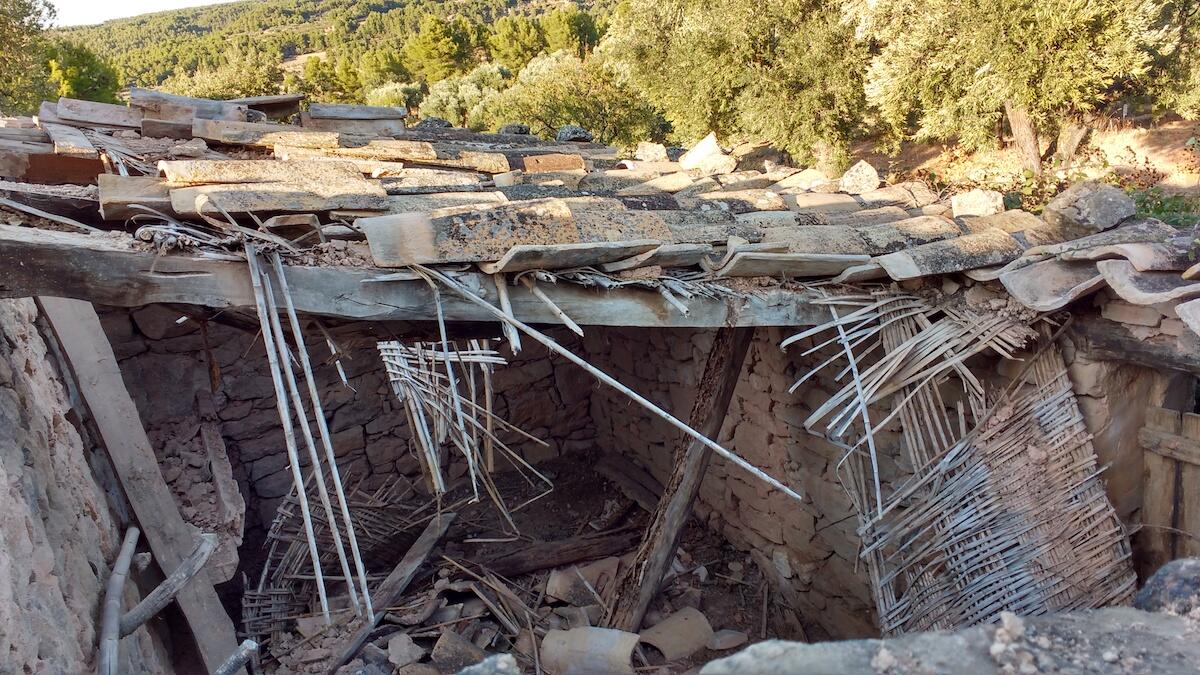
Weather-wise, rural Spain is all about 300 days a year of sun shining its anti-depressant energy over blanched landscapes of olives, ochre soil and sleepy villages.
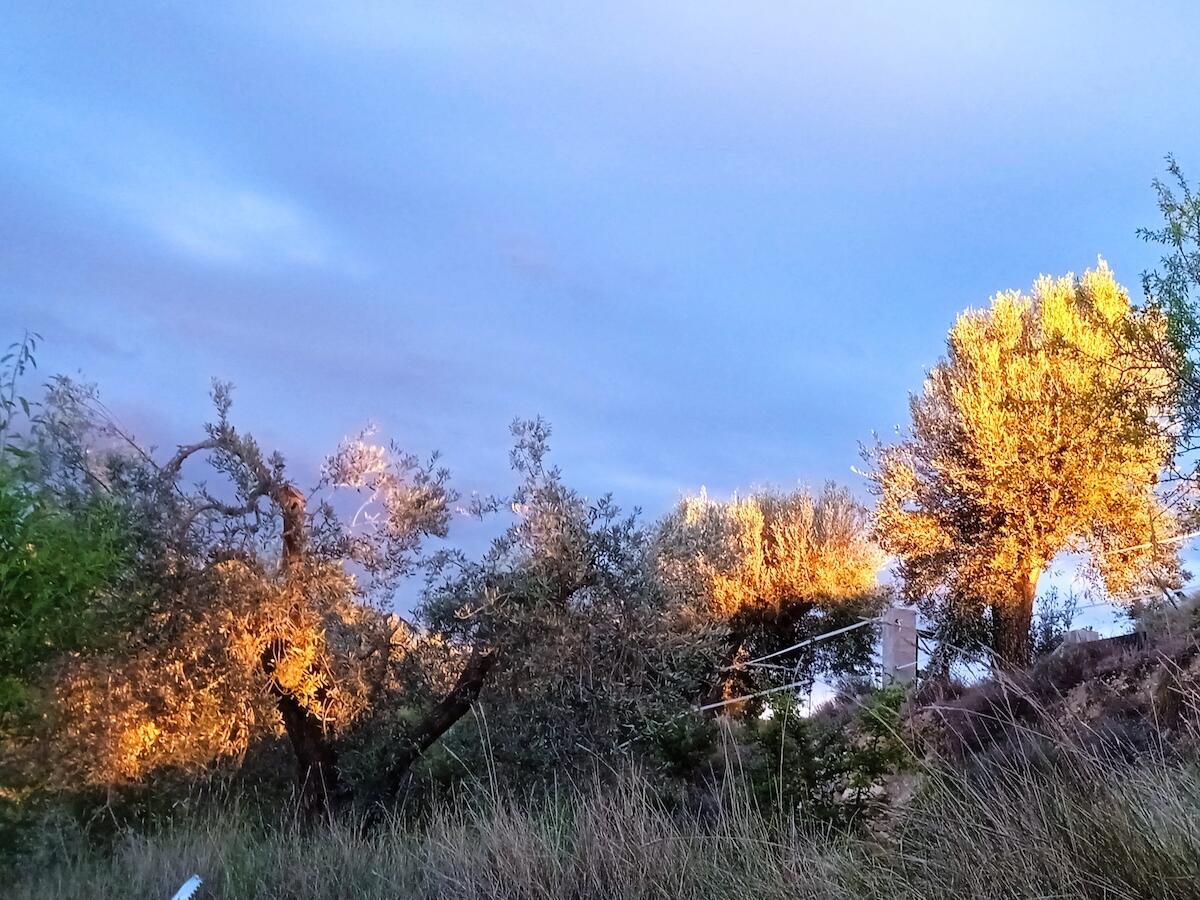 Temperatures can range from minus 10C and snowy to over 40C and drought dry. I'm writing this in a darkened room, sheltered from the August sun. But for all the talk of extremes, there are plenty of tolerable months in between.
Temperatures can range from minus 10C and snowy to over 40C and drought dry. I'm writing this in a darkened room, sheltered from the August sun. But for all the talk of extremes, there are plenty of tolerable months in between.
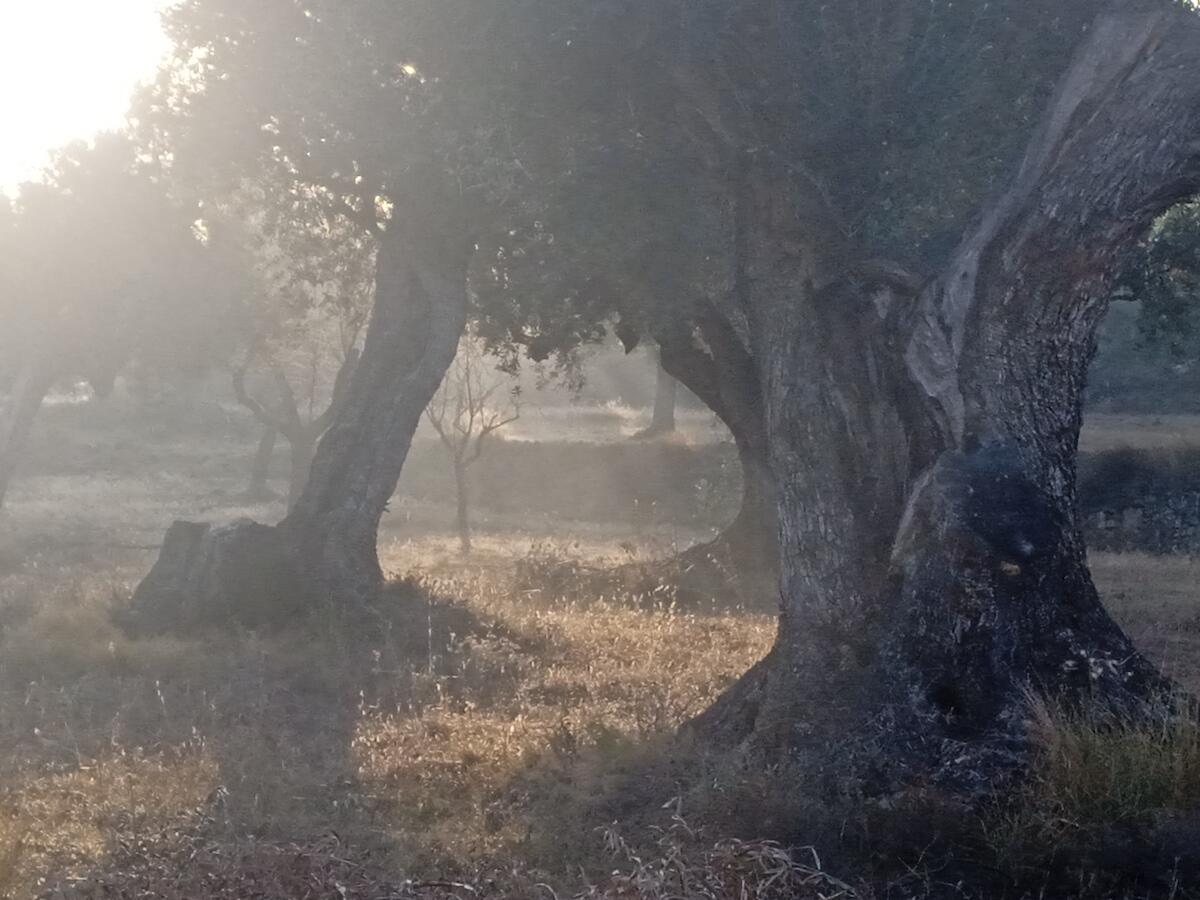
I have been lucky enough to live among olive groves, and to be part of a process of restoring the ridged and furrowed soil between gnarly olives. To see greenery and the insect life that comes with it, is a privilege.
After a few years of being around olive trees and wise farmers, my own bag of experience is packed, and an olive farmer is what I want to be, until I can't. I just have to work out how to live off a limited number of olive trees!
My interest in chickens started as a teenager, earning me the nickname "Chicken George", the guy from Roots. I've always had a soft spot for their crazy dinosaur stare, busy-body attitude, and resilient constitution.
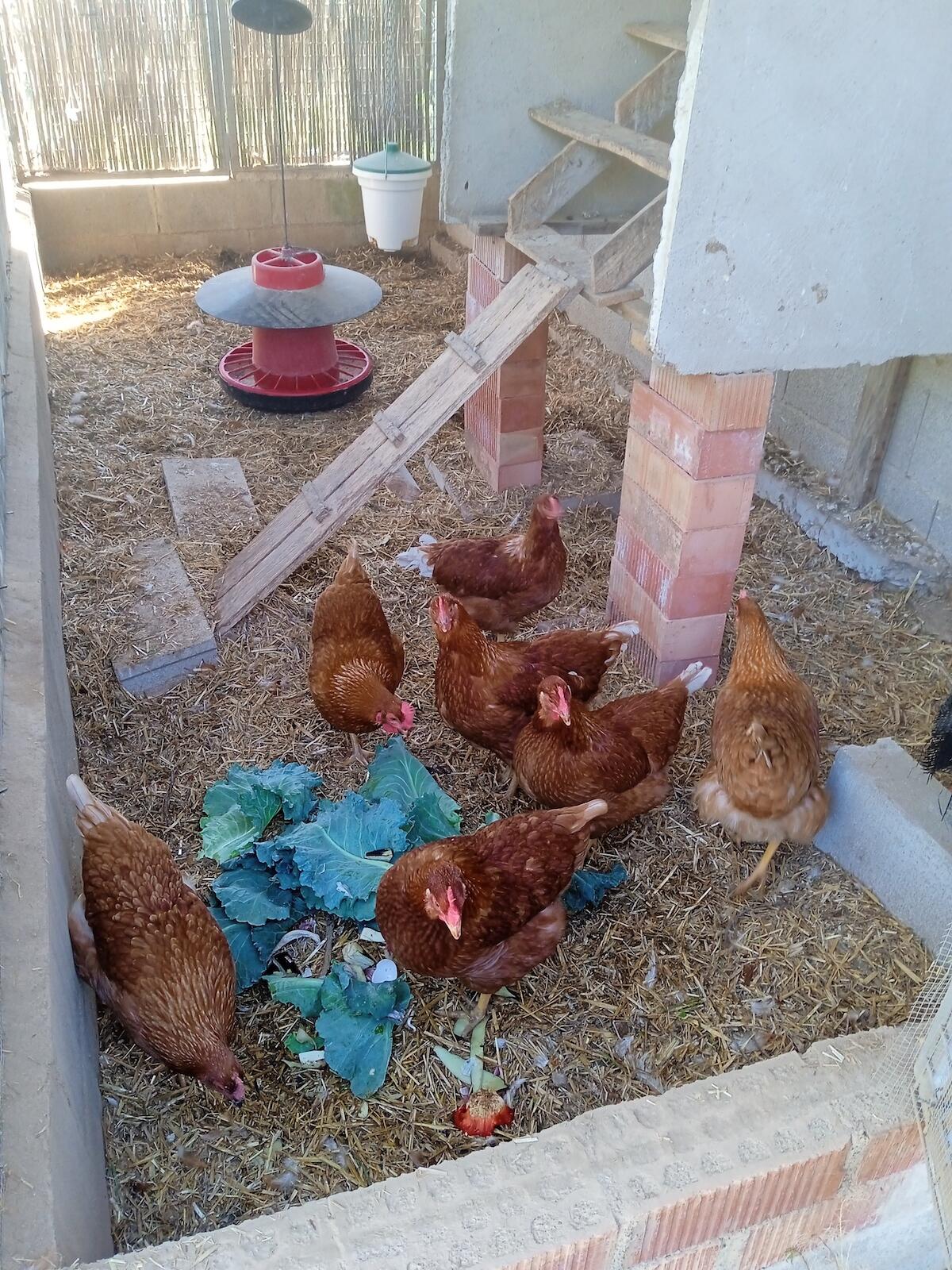
It doesn't hurt that chicken eggs are also number one on my list of all-time favourite foods.
Number two used to be bacon, which I ate with eggs for breakfast every school day until I was 18. I would add a rasher to any sarnie, given the chance. But after 50-odd years, that changed, unexpectedly. One moment I was munching on delicious meat, the next I was retching at the thought of eating dead flesh. Mad but true. And I'm not the only one with a similar experience!
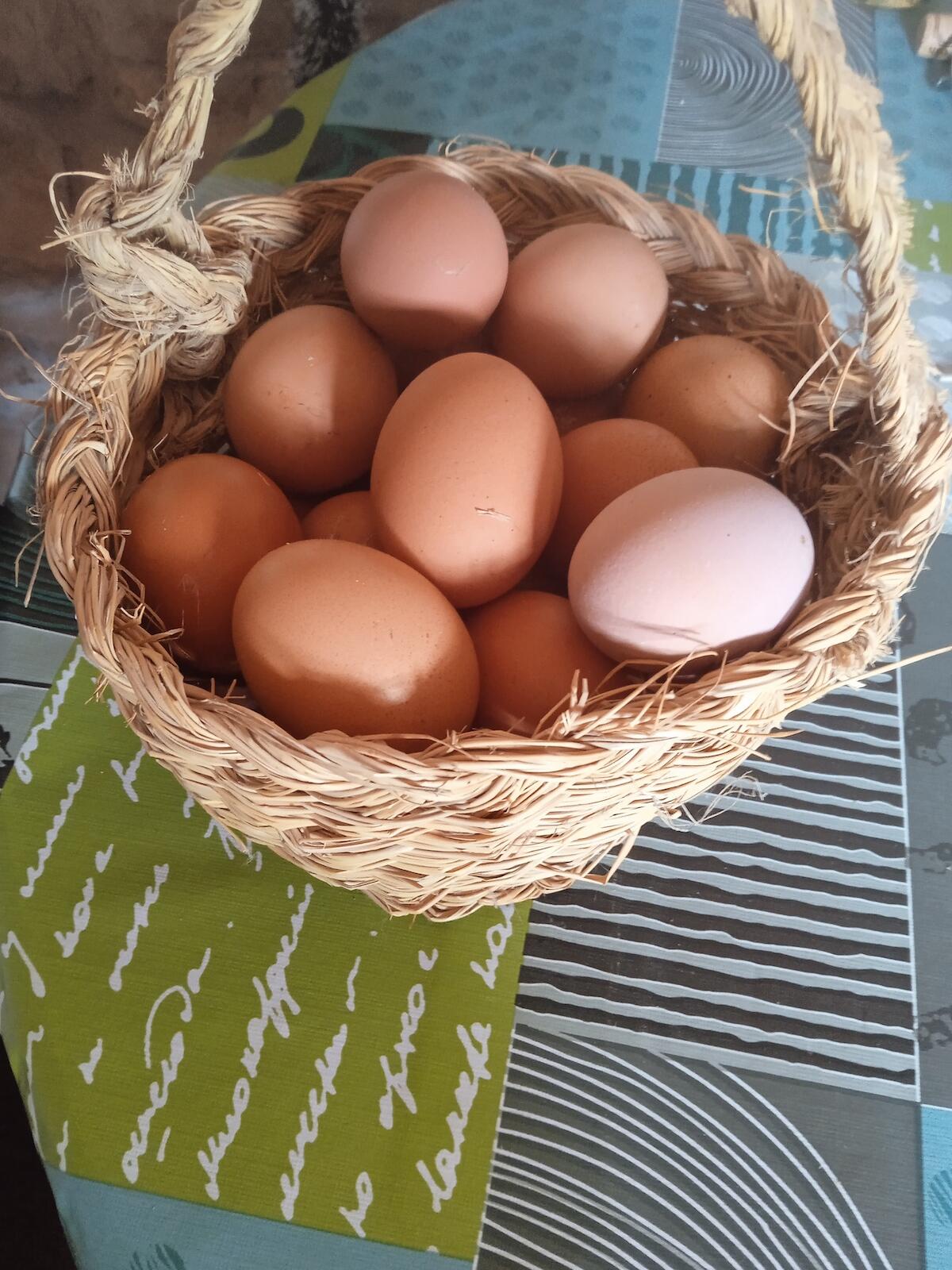
Of all the passions in life, however, the real number one on my list is my beautiful daughter. She's working out OK, proving quite a handy asset. That basket was her handy work. Being bilingual she understands the nuances of language and has forbidden me from calling my egg business "Mis Huevos"!
Pulling together all the threads of a long and varied journey, here I am. I think I have been well prepared for this last venture with the chicken farm, before I too am put out to pasture. But for all my enthusiasm, it has to be said that if it weren't for the promise of Bitcoin - fix the money, fix the world - I honestly wouldn't be as optimistic about the future as I am now.
You might be surprised to know that the business model I have in mind is one of the few profitable enough to match the annualized returns of buying and holding Bitcoin. But instead of trading Bitcoin and sucking my thumb to the bone on the terrace watching a ticker on a screen, there's much better things to do. "LFG, chickens!" as the cyber hornets might say.
-
Join me on Nostr, the only social media platform I (dare) use to share more of my story and latest news on Olive Grove Eggs. I have a mighty good deal in mind for customers who buy my eggs on Nostr!
-
For more meat on the Chicken Guy story check out the growing compendium!
The chickens
Today's hybrid chickens are a far cry from their wild ancestors. The first birds only laid about 12 eggs a year for reproduction purposes only. But over thousands of years, they evolved to lay more, and more, and more eggs! They are up to about 300 a year now.
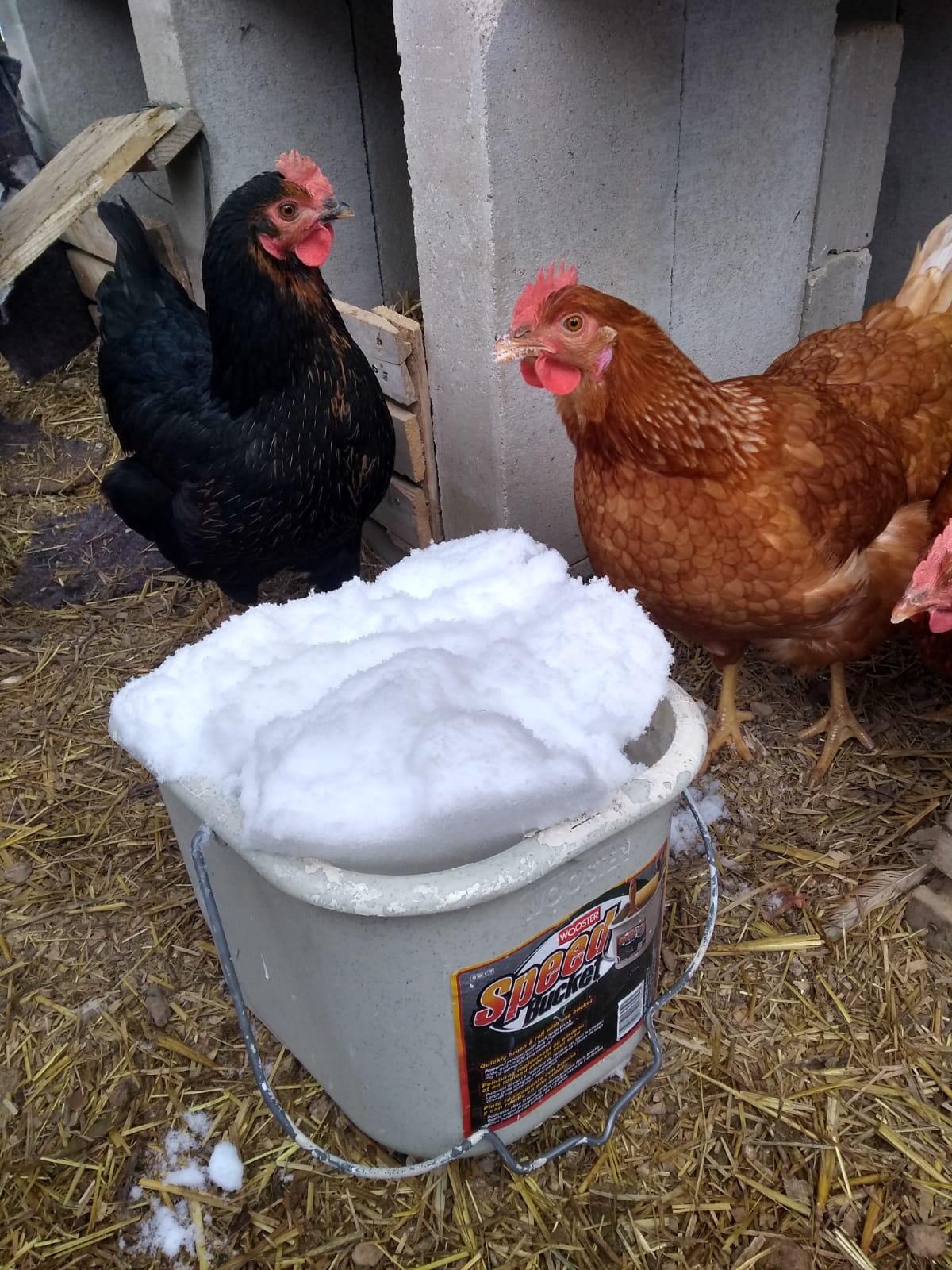
To be precise, healthy layers today produce an average of 0.82 eggs per day. That's pretty impressive, but it can be tough on them, especially when it comes to their calcium levels. So, it's important to take good care of them to keep them in tip-top shape beyond their two peak egg-laying years.
I can tell you, though, from experience along the way, olive grove hens live their best lives! They spend all day outside, scratching, eating, and clucking their way through olive groves. When it's time to lay their eggs, they head into a mobile coop and when they are finished they rush back out again. And at night, they sleep safe and sound inside, with a large guardian dog keeping watch.
The farm will be mobile. Each wheeled coop housing 140 hens, three coops, making for 420 chickens in total. They will be let out on 420m2 of fresh pasture in the olive grove before being moved every 2-3 days to the next patch. It's a classic example of intensive grazing! I can't take the credit for devising this system, that's been the life's work of people like Joel Salatin and Richard Perkins.
And when the chickens start to slow down on laying, they will continue to be productive in other ways, like fertilizing and turning over the soil, which is great for the olive trees. I don't have to worry about tractors and ploughs and importing manure every year! And they don't have to worry about being culled. Just because they aren't super layers any longer doesn't mean they can't be productive and pay their way!
Cats and dog
There are some extra special animals raring to help out with the chickens.
Cats
Let me introduce you to three f-f-f-f-furry feline farm friends. Three generations of cats currently permit me to share the countryside with them. They patrol the area making sure I keep busy, but not so busy I haven't got time to feed them.
Tiger is the matriarch
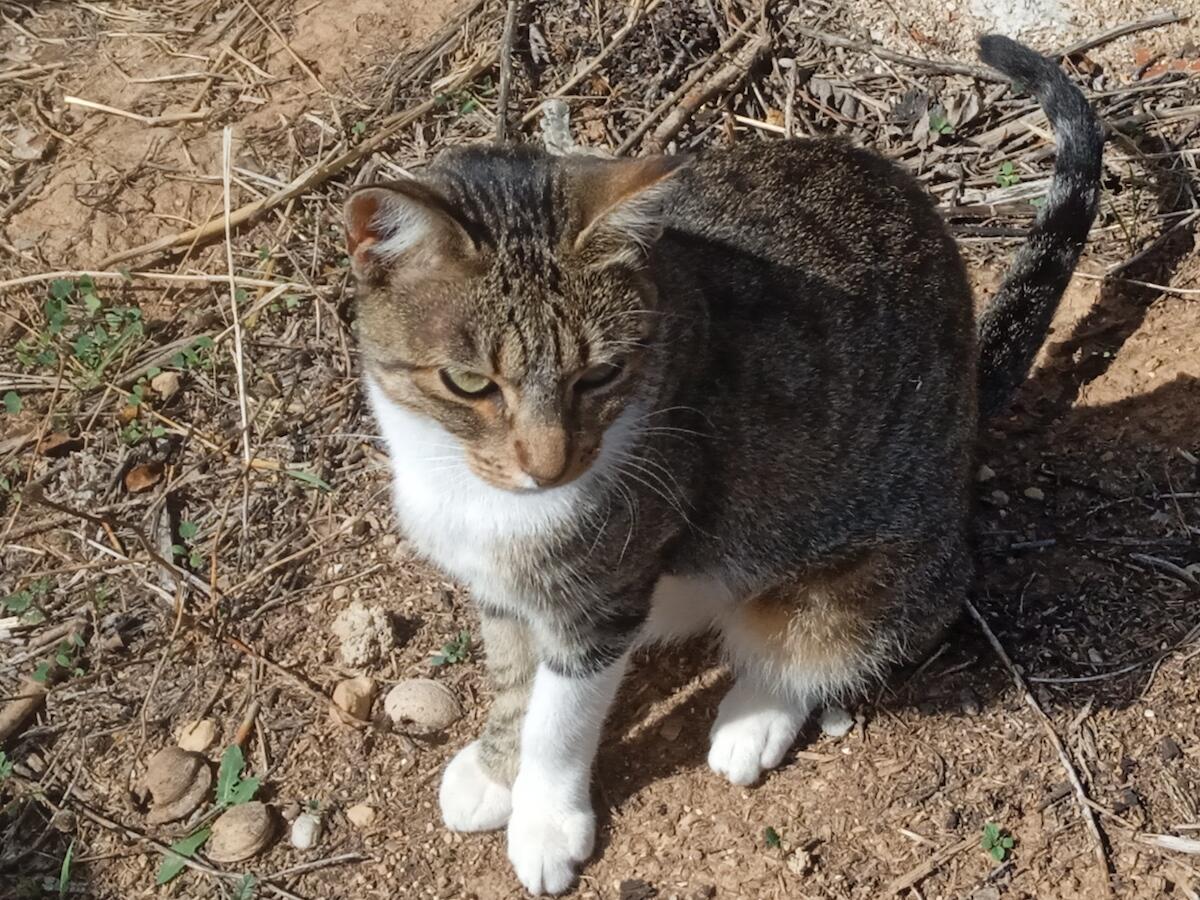
A 3-year-old kitty, she has won me over. At first, I wasn't much into cats, but she has a way of following me around like a dog which I find endlessly amusing. She is also a super savvy mother and to be honest, she's my first ever cat, and I love her.
Then there's Moon!
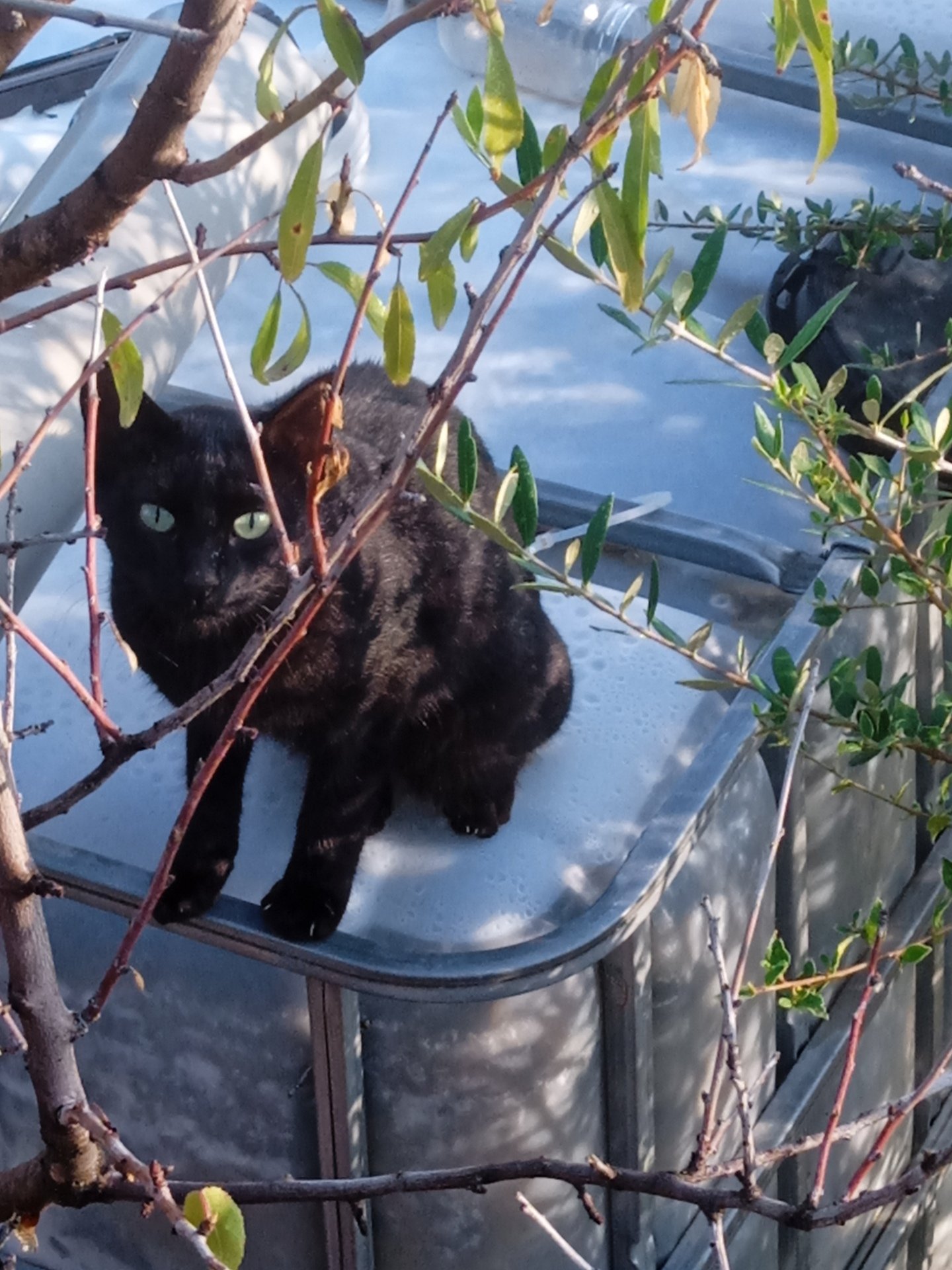
She's blacker than a panther. We didn't get off to a good start, though. As a kitten, I thought I had killed her when she snuck up behind me and, just as I stepped back, she positioned herself exactly where my hefty boot landed. She squealed like a little piglet, I jumped, and caught sight of her hobbling off with a dangling leg. I was sure I had crushed her litle insides. But she's a tough 'un and survived unscathed and unbroken. I thought she had learned her lesson, but nope! I still have to tread carefully around her, the daft thing.
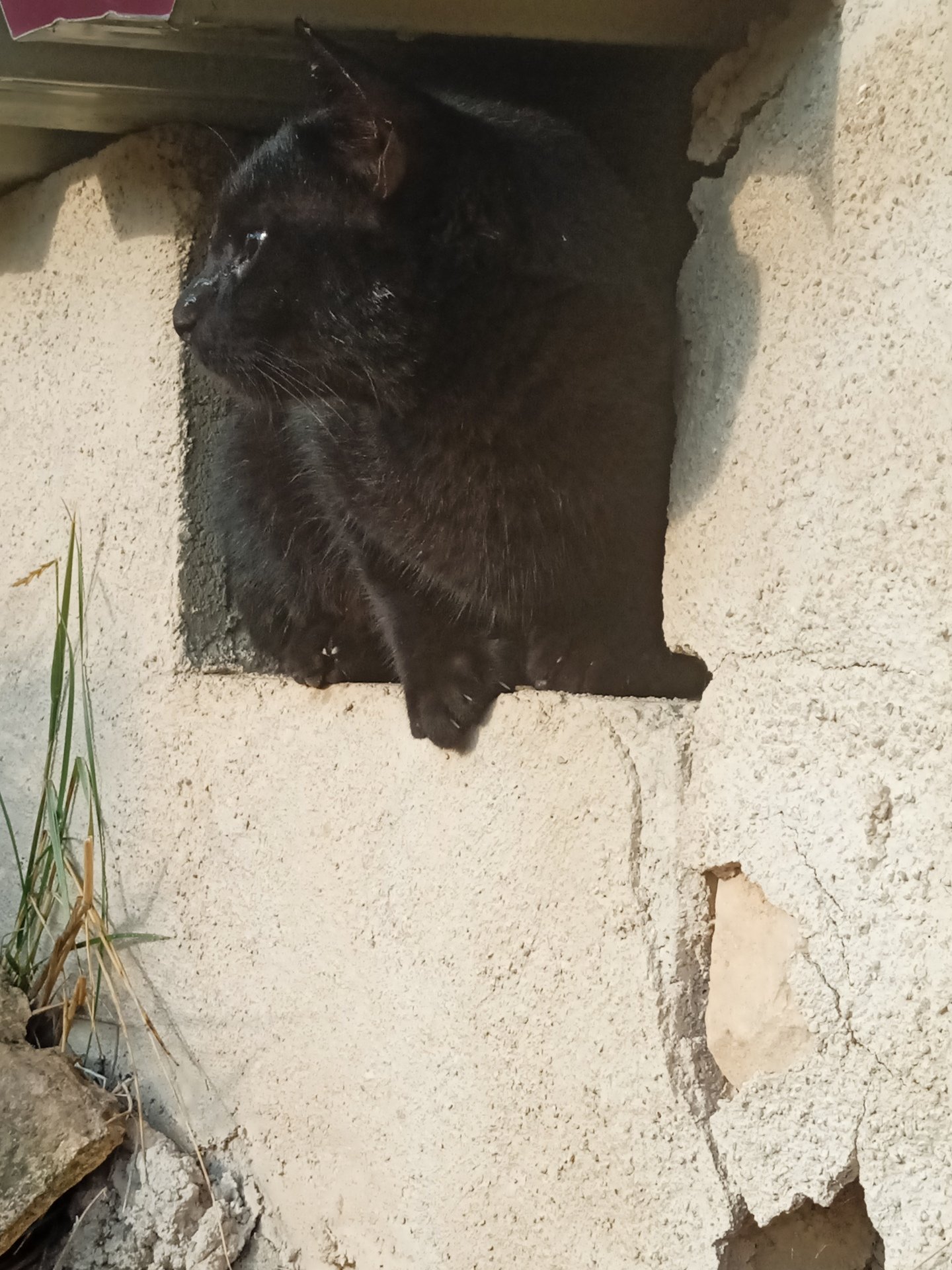
And finally, we have No Name
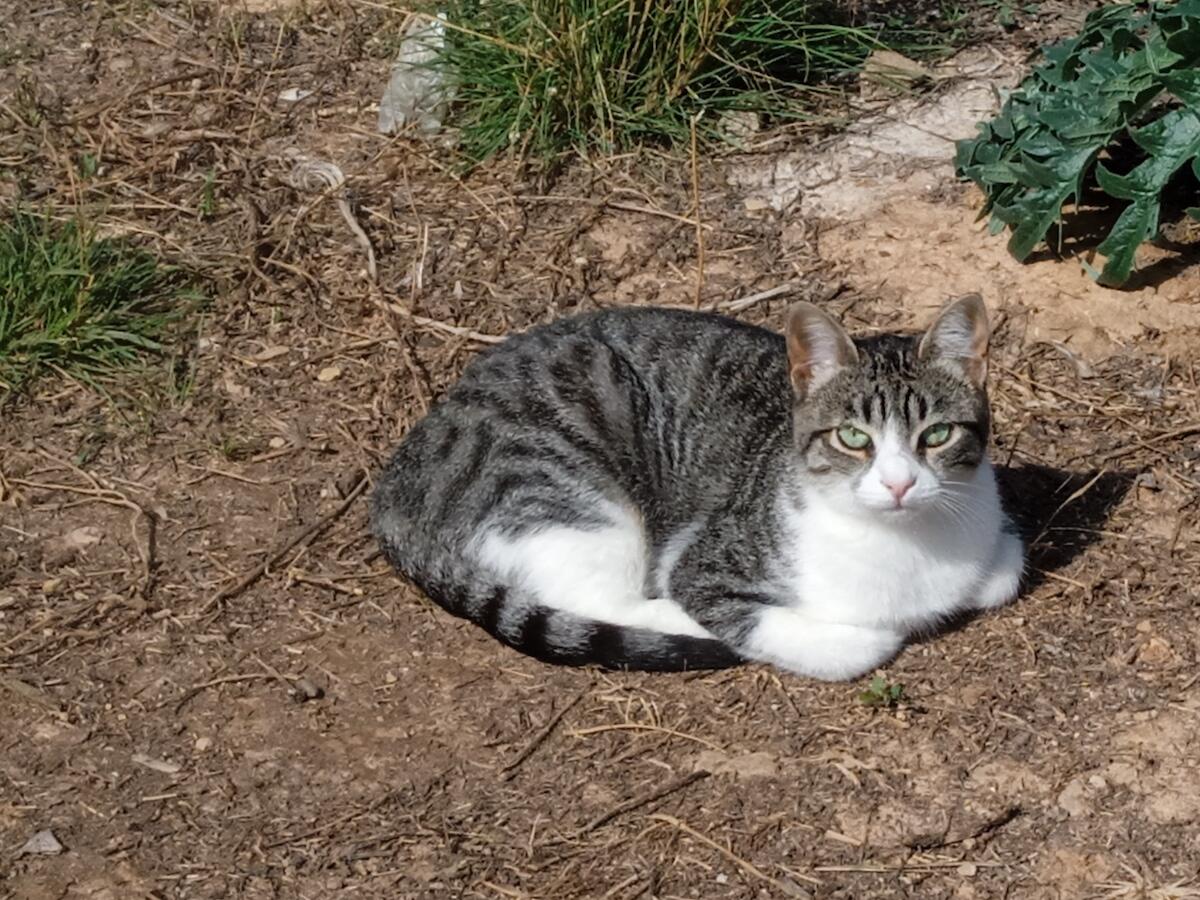
She is the last addition to our cat family - a super cutey with no name. She was one of three that appeared one day in a wall, about 6 weeks old judging by their size. Tiger kept that quiet, only about 20m from the house too. I've never been able to hold this one, but she's close with the other two and has grown on me. I guess I'm just her ultimate servant!
Dog
There is a trusty canine in our future, called "Dog". I like to keep things simple. This furry guardian friend will have a very important job - scaring off predators while being gentle enough not to chase after the flock. Plus, they'll be great company for me and family and friends!Dog will be a Spanish Mastiff as big as that sounds, albeit very cute and cuddly. Except these pups are huge and fearless - they'll even stand up to a bear! But brawn aside, there's not an ugly bone in their body. The only downside is their appetite - it takes more than a few eggs to keep them mutts from the door at feeding time!
This young fellow has been keeping me company and awake at night for a while now.
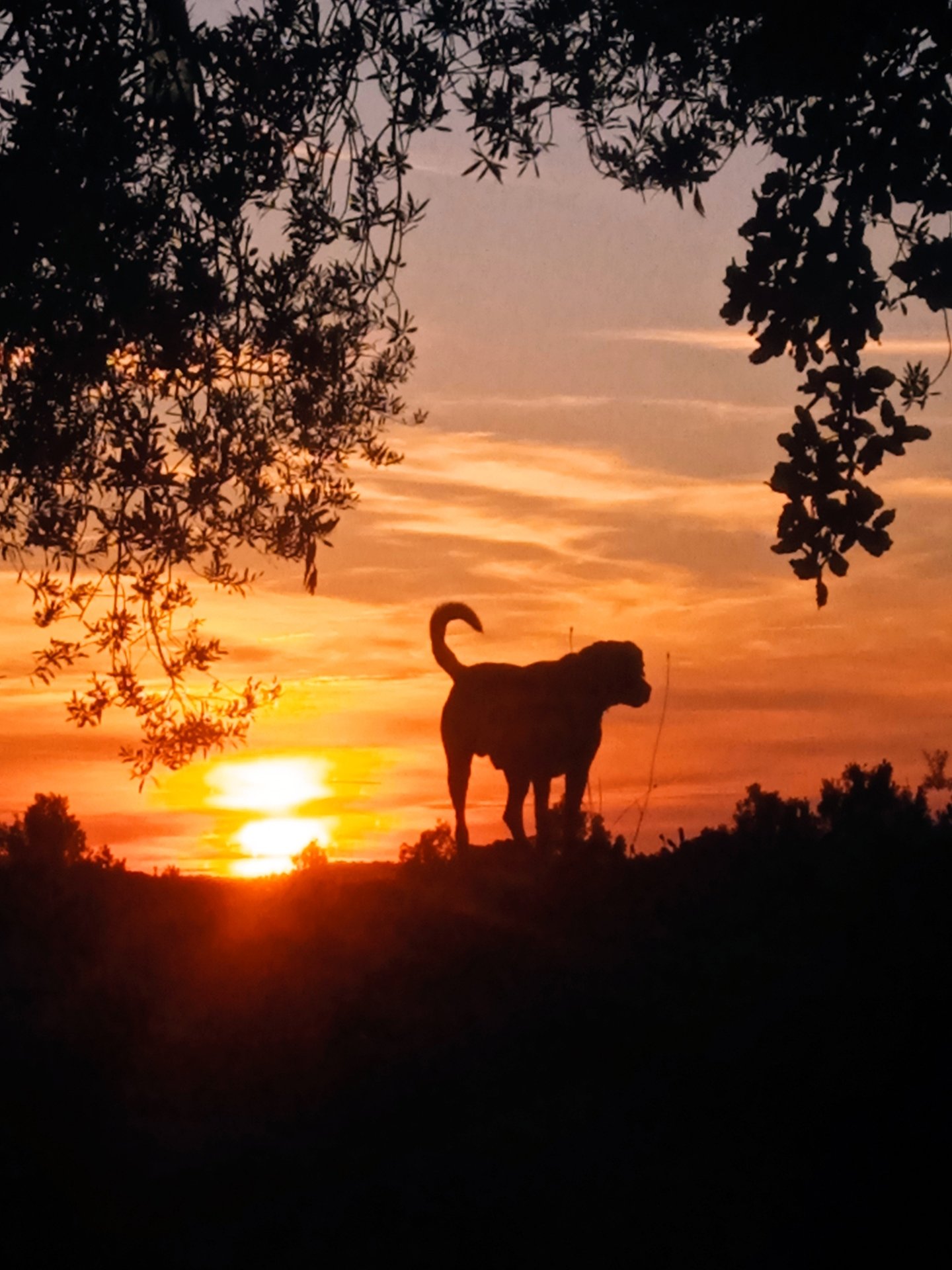
Handsome and very intimidating, he looks and barks like a Baskerville hound, but he's not my dog, so he'll stay patrolling his current territory!
The olive groves
I've got my eye on 1.4 hectares of olive groves, home to about 24 olive trees that are between 50-100 years old. Rain-fed olive trees are usually planted out at 50 trees per hectare, so 24 in 1.4 hectares isn't a lot of trees. Clearly the land is full of promise and potential, and I'm excited to see what I and they can do! I'm pretty well versed in pruning and picking but I'm also fortunate to have the ear of several good mates with a lot of experience, so I know the olive side of things is in good hands.
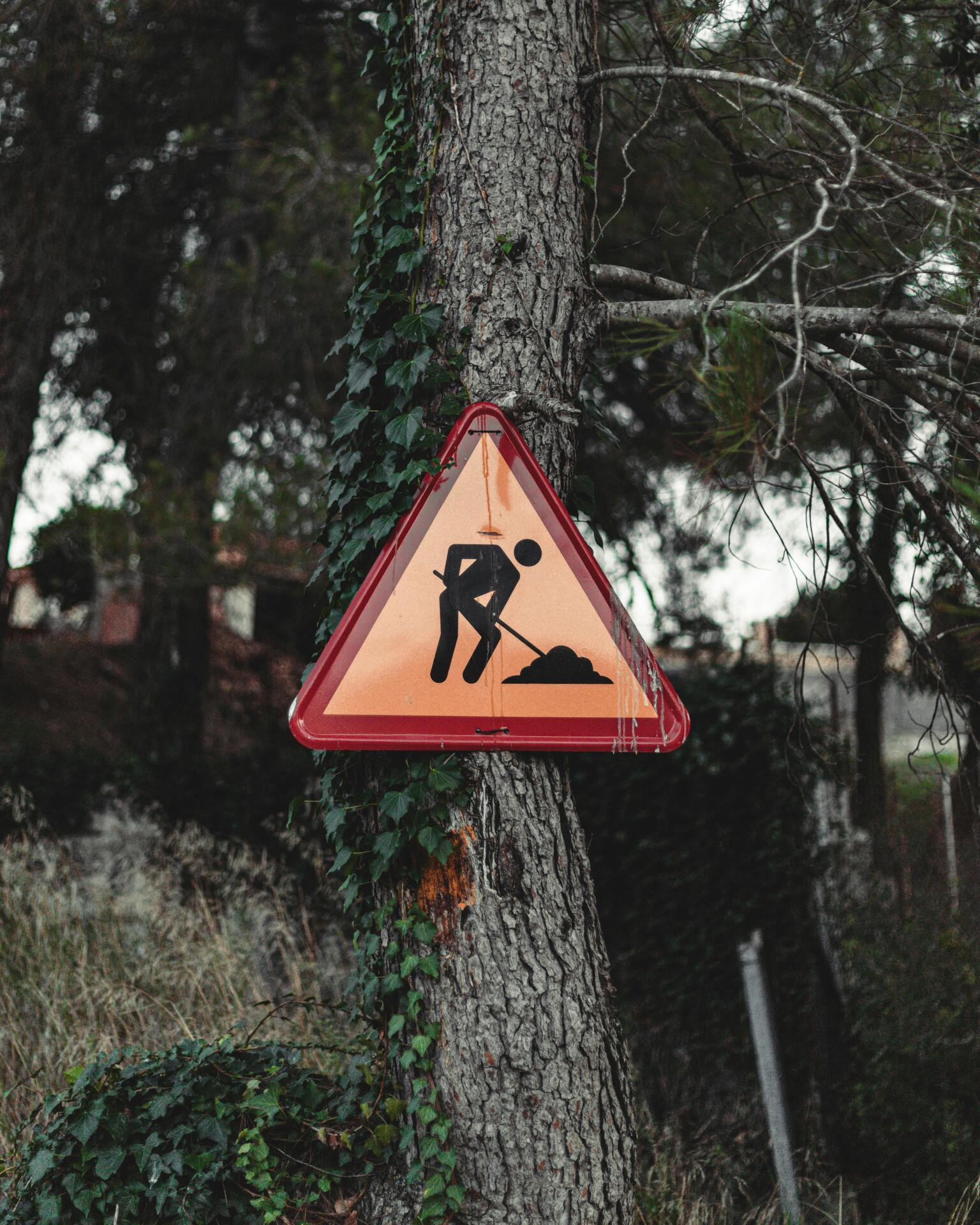
But working the olive groves is not just about the olive trees - I'm also focused on rebuilding the ground cover and restoring biodiversity to the land. And I'll have some help with that too - the chickens! With 5 years of experience already under my belt restoring biodiversity on 4 hectares called home, I'm confident in the process of restoring ground cover and creating a healthier ecosystem. The chickens will play a big role in that, as they scratch and peck at the ground, helping to turn over the soil and add nutrients back in. This approach is a win-win for both the olives and the chickens! And olives especially need to win for a lot of reasons.
The olive harvest is so important to the general health and wellbeing of millions of people in Spain and the 64 other olive-producing nations, as well as the nations that need to import oil by the thousands of tonnes a year. If the market drives small scale olive farmers out of business, consumers lose, as do the rural communities with one less source of income, one less reason for youngsters to stay in the countryside.
The current solution to a struggling Spanish countryside is EU subsidies of 350€ per hectare to plough the land, keep it tidy. To my mind that is a tax-paid campaign to destroy the environment for short term gain. I have a better idea - run a mobile chicken farm through olive groves and make all ends meet.
And that's the point of the project, to harness chickens to not just keep the land as nutrient-rich as possible for the trees to flourish, but to also keep the cash flowing in, to keep the olive groves financially sustainable. You may not realize that non-irrigated olives fruit every two years, and producing €1000 per hectare here is not unheard of. Run the numbers, that's a lot of pressure to make enough to afford to farm olives on a small scale without irrigation. About half of Spanish olives come from such parcels. Sideline businesses that don't pay much and are a constant drain on resources are ripe for being abandoned or being sold to major enterprises. Neither outcome is positive.
I'm committed to building a strong community around Olive Grove Eggs, and I'm using the V4V (Value for Value) model to make it happen. By providing value and assistance wherever possible, putting myself out there, sharing information, and supporting others' initiatives, a community can grow off the back of mutually beneficial exchange and enterprise.
I know it works from my own trials plus feedback on similar projects in orchards other than olives. When I have the data, I will create a template to share with owners of smaller olive groves in 64 olive-growing nations. With a plan to work to with no guesswork involved, other small farmers in communities world-wide can adapt the model to their culture and legal needs and shore up their own leaky situation.
Interior Spain at 41 degrees N
The weather here can be pretty extreme - we're talking 41 degrees Celsius in the summer and well below zero in the winter. And when it rains, it really pours - we can get 41mm of rain in just a few hours! It's definitely a challenging environment, but I've grown to love it here. In fact, I've been a Spain fan for nearly 30 years now since turning up in Andalucia on a mountain bike in 1997. Having lived all over, I'm pretty sure 41 degrees N is where I'll spend the rest of my days, still with the same bike coincidentally!
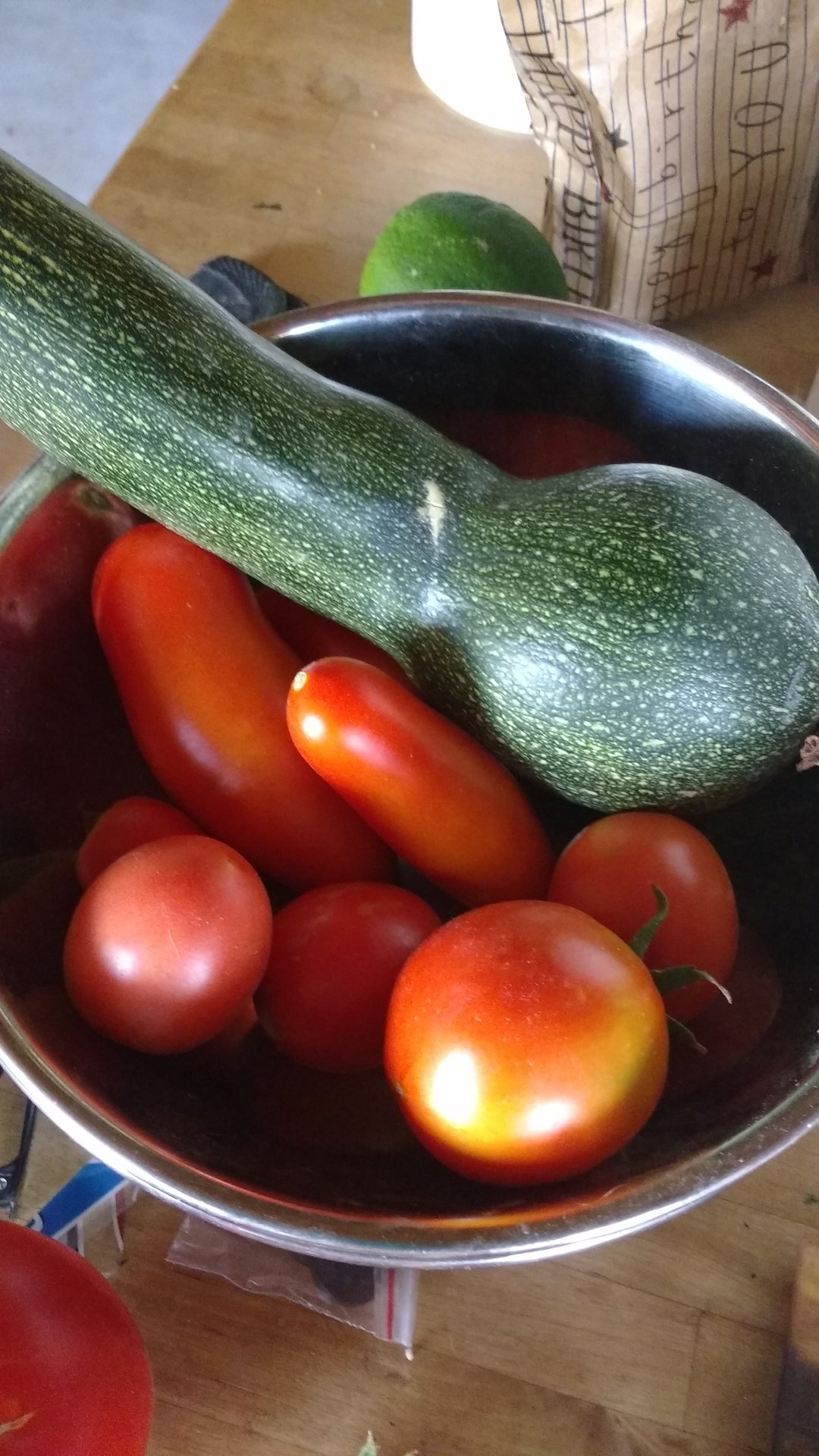
The varied topography is one of my favorite things about inland Spain - we've got rolling hills, deserts, mountains, canyons, prairies, and more. And with 11 autonomous regions, each with their own unique culture and language (apart from Castellano), there's always something new to explore.
The coastlines here are extensive too, ranging from the Mediterranean to the Atlantic. And I have to give a shoutout to the public transport and roads - the Spanish really know how to make the most of EU money!
Spain is also the biggest olive producer in the world, with 10 times the production of California. It's still very much a culture of eating your own food and cooking every day, with great ingredients and super healthy options that are still affordable. But I have to say, the food preparation can be a bit bland compared to other countries. Thank goodness for the diversity of immigrants like myself who bring an extra touch! Baked Beans anyone?
There's so much more to talk about when it comes to inland Spain, but I think I'll save it for the newsletter and Nostr social media posts. Stay tuned for more!
Subscribe to the newsletter, "Rare as Chickens' Teeth"
Sign up to the free monthly newsletter, fun updates on chicken and olive farmers in Spain, wine and cheese makers in the US, foresters, basket makers, nostriches...
Better still, sign up for a paid monthly subscription. In the spirit of Value 4 Value, you'll receive bonus content and your support will help offset the cost of running the website.
I eagerly await your feedback on the newsletter.
Shout out to Ghost, which powers this website
I muddled my way through a free trial and gratefully accepted Ghost's standard option to extend the trial for a week. I'm a bit slow and still ran out of time before I could show my ideas to my unofficial "editor-in-chief".
When I explained my circumstances to Ghost, they very kindly offered me an extra week. That gave me space for the final push, and when the feedback on the project came back positive, I happily signed up for a Ghost Starter plan. I am now as happy as a bird, although I can see I have already come up with ideas that will require a plan upgrade sooner rather than later.
Build your very own subscription business using Ghost, the same platform that powers this website.
